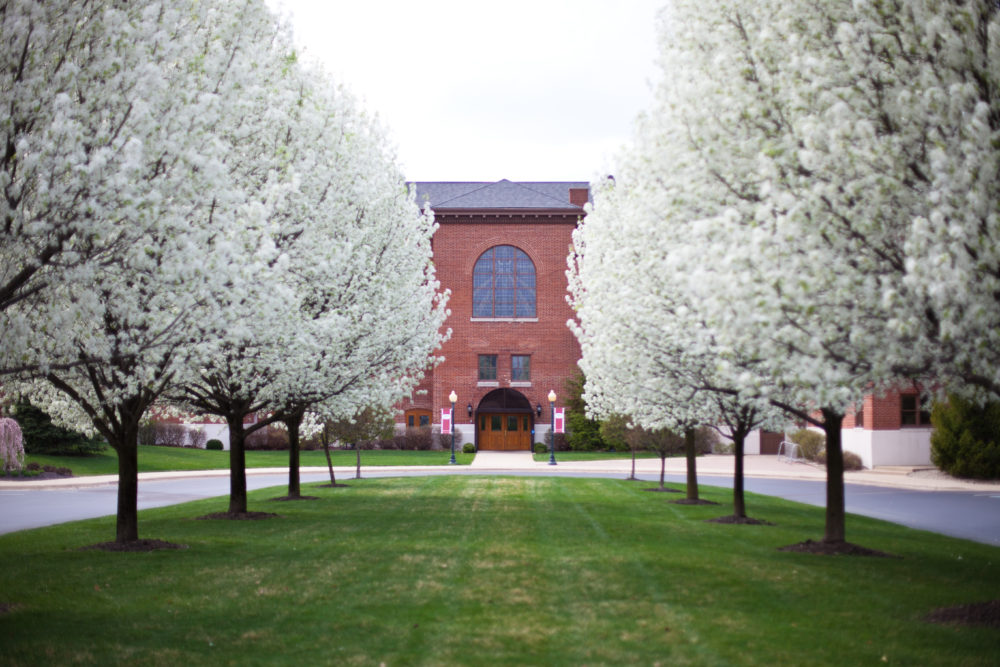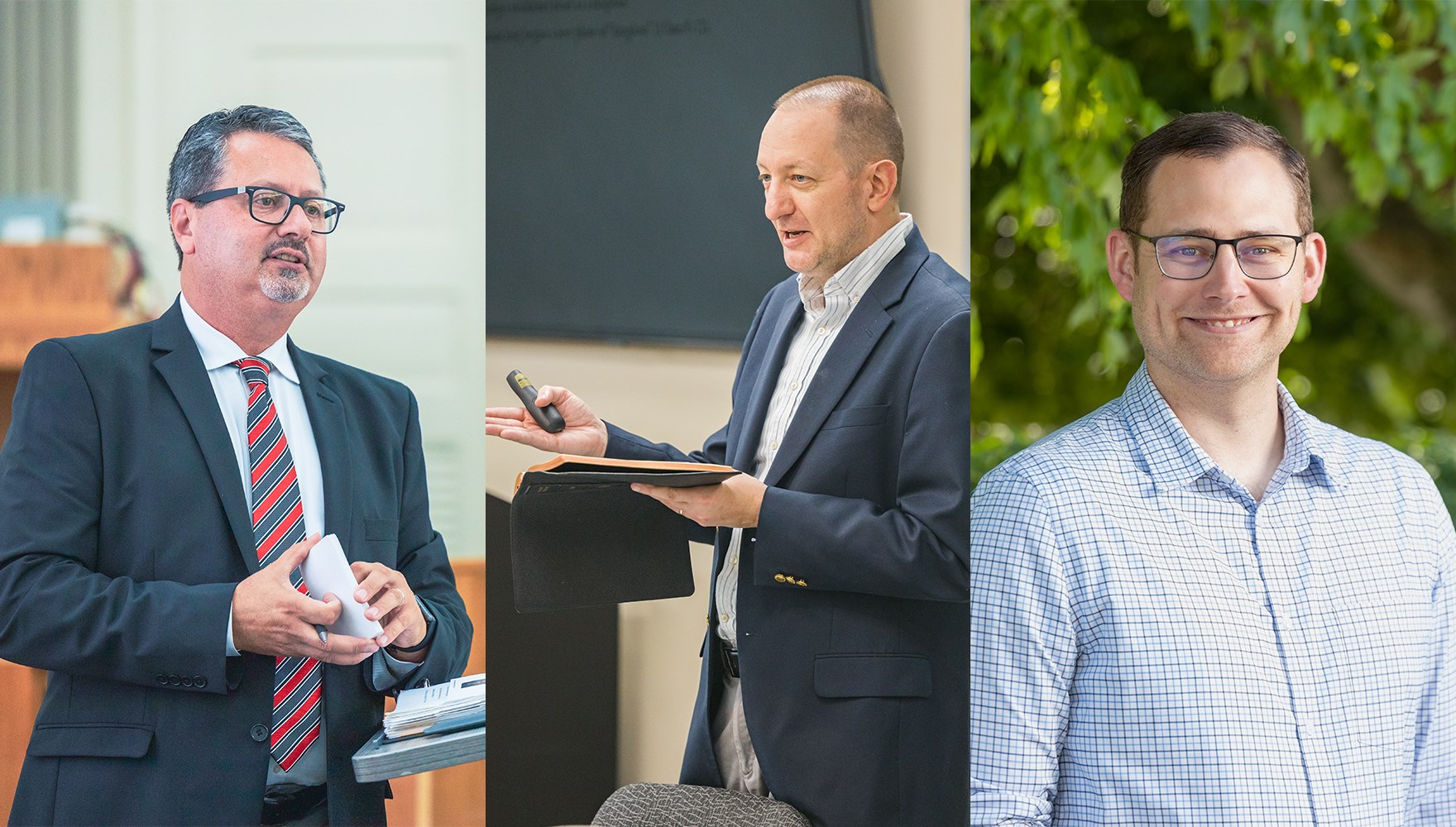February 4, 2022
How Can Jesus be Fully God and Fully Man?
Written By Grace Theological Seminary
Tagged With Preaching & Pastoring Dr. Matt Harmon

Students seeking to become a pastor should be aware and prepared to answer the questions and curiosities of the people they’re leading. This will sometimes mean fielding quick questions about where to find something in the Bible. At other times it will require much deeper study and further research.
One such example is trying to understand how Jesus Christ can be both fully God and fully man at the same time. It stretches the limits of our finite minds. Even the brightest minds in the first few centuries of the church struggled to explain how Jesus could be fully God and fully man! But passages such as Philippians 2:6-8 make clear the full deity and full humanity of Jesus Christ, “who, though He was in the form of God, did not count equality with God a thing to be grasped, 7 but emptied himself, by taking the form of a servant, being born in the likeness of men. 8 And being found in human form, He humbled himself by becoming obedient to the point of death, even death on a cross.”
As the Son of God, Jesus has existed from eternity past, but at a specific point in history He took on human flesh to dwell among us. When we try to wrap our minds around this reality, one of the questions that arises is what was Jesus doing before He was born in Bethlehem? How is Jesus both fully God and fully man? While the Bible does not provide an exhaustive answer, it does give us some indications.
Jesus Fully God and Fully Man
First, from all eternity the Son has been enjoying the love and glory that He shares with God the Father. Shortly before his death, Jesus prays “Father, I desire that they also, whom you have given me, may be with me where I am, to see my glory that you have given me because you loved me before the foundation of the world” (John 17:24). He was receiving the worship of the heavenly hosts that He rightly deserves (compare Isaiah 6:1-8 with John 12:37-41).
Second, the Bible identifies God the Son as the Creator of all things. Referring to Him as the Word, the apostle John writes “In the beginning was the Word, and the Word was with God, and the Word was God. 2 He was in the beginning with God. 3 All things were made through him, and without him was not any thing made that was made” (John 1:1-3). Paul speaks of the same reality in Colossians 1:15-16 – “He is the image of the invisible God, the firstborn of all creation. 16 For by him all things were created, in heaven and on earth, visible and invisible, whether thrones or dominions or rulers or authorities – all things were created through him and for him.” These passages (along with others such as John 1:10; 1 Cor 8:6) make it clear that the Son of God created everything in the universe.
Third, before His incarnation, the Son of God was sustaining the universe. The author of Hebrews says that the Son is “the radiance of the glory of God and the exact imprint of his nature, and He upholds the universe by the word of his power” (1:3). Colossians 1:17 communicates the same truth when it says that Christ “is before all things, and in him all things hold together.” The reason that the universe continues to exist is because the Son of God sustains it.
Fourth, the Son was preparing to redeem his people. In John 17 Jesus refers to the Father giving him work to accomplish (17:4) and a people to redeem (17:6). Only when the fullness of time came did God send his Son into the world to carry out his mission (John 17:18; 21; Gal 4:4).
So while the Bible does not speak extensively of what Jesus was doing before He was born in Bethlehem, it does show him as fully God and fully man. He is the creator and sustainer of the universe who was receiving angelic worship while awaiting the time when He would take on flesh for our redemption.
Does the thought of deeper study of God’s Word excite you as you explore the possibilities of a life of ministry? Grace Theological Seminary offers eight distinct concentrations within our MDiv degree program, including Pastoral Studies. Learn more about our various programs and unique pathways to match your unique calling and season of life.
Matthew S. Harmon
Matthew S. Harmon, Professor of New Testament studies, loves to help people understand the beauty of Jesus Christ as revealed in the Scriptures, seeing it as the key to life transformation (2 Corinthians 3:18). As a result, the focus of his ministry is teaching and preaching God’s word in various contexts. He has a passion for research and writing, specializing in the use of the Old Testament in the New Testament, biblical theology, commentary writing and the Pauline epistles. He is an active member of Christ’s Covenant Church, where he serves on the preaching team and regularly teaches Sunday School.
Share
Tagged With Preaching & Pastoring Dr. Matt Harmon



